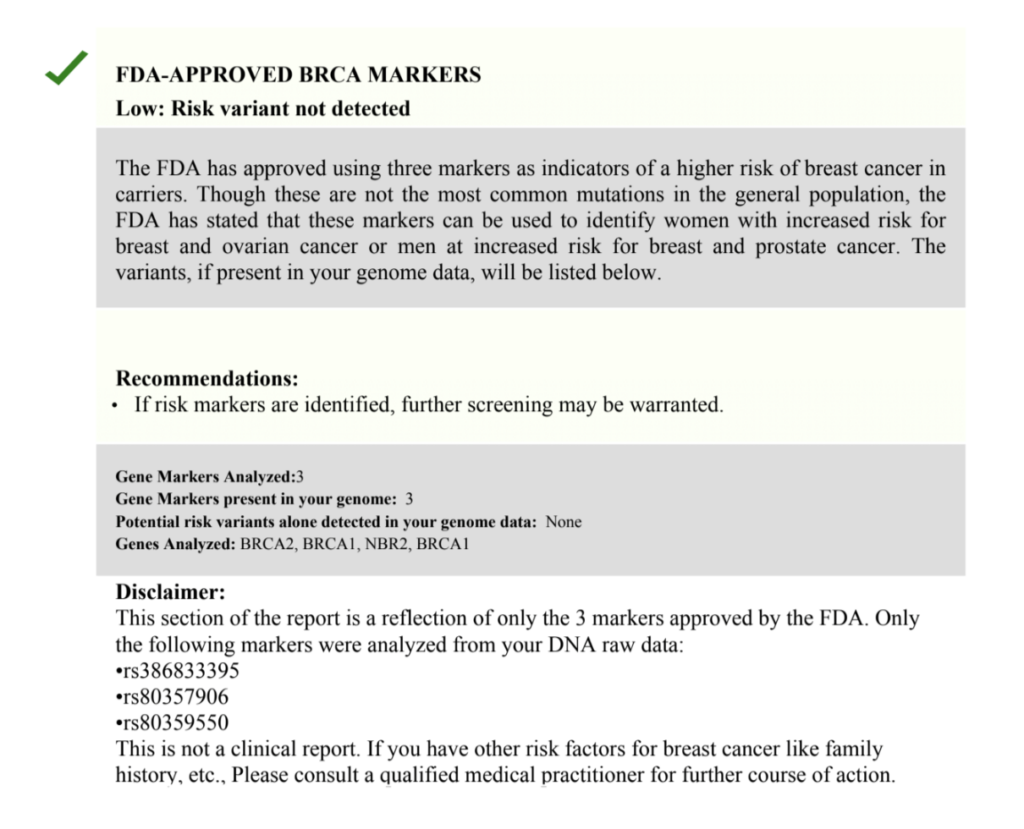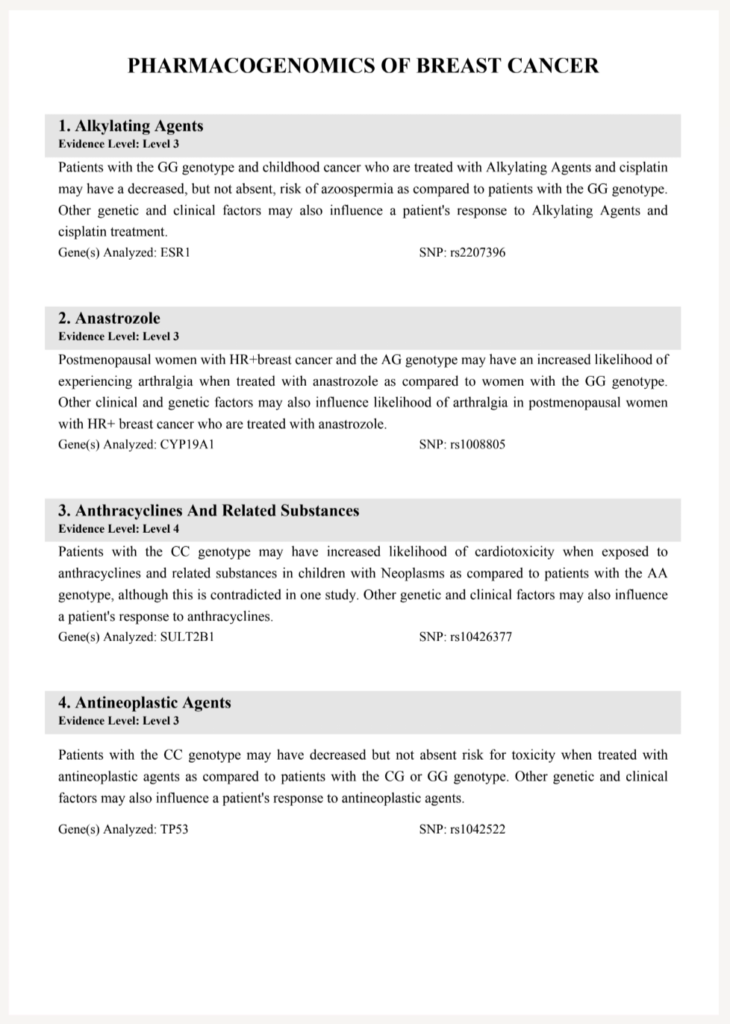Xcode Life’s BRCA and Breast Cancer Report targets genes that are associated with cancer susceptibility. This report helps you learn about your predisposition to breast and other cancers and take preventive action.
What does BRCA stand for?
BRCA is an abbreviation for Breast Cancer Gene.
BRCA Gene: BRCA1 and BRCA2
BRCA1 and BRCA2 are the most common genes associated with breast and ovarian cancers. These genes actually help prevent tumor cell formation by repairing any DNA damage. If there are any errors or mutations in these genes, it can increase the risk of several cancers, including breast, ovarian, prostate, and pancreatic cancer.
Testing positive for a BRCA mutation means your risk of developing breast and ovarian cancer is greater than that of the average person. However, higher risk does not imply a diagnosis of cancer.
Xcode Life's BRCA and Breast Cancer Report - $40 - 34 traits
BRCA and Breast Cancer Report
In the Breast Cancer Report, we profile genes that are shown to be associated with an increased risk of breast cancer and your response to various drugs administered for breast cancer.
In 2018, FDA approved the genetic testing of 3 specific BRCA gene mutations. Women who test positive for one of the mutations are at increased risk of developing breast and ovarian cancers.
A faulty BRCA1 or BRCA2 gene can be passed down from one generation to the next. In the first section of the report, the three FDA-approved markers and other mutations in the BRCA genes associated with increased cancer risk are analyzed.
55%–72% of women who inherit a harmful BRCA1 variant and 45%–69% of women who inherit a harmful BRCA2 variant will develop breast cancer by 70–80 years of age

People who have a family history of breast cancer are estimated to have at least a one-in-ten chance of carrying a faulty gene.
The report also profiles other genes that indirectly affect the risk of breast cancer. Some examples are genes that affect the expression of estrogen receptors, breast size, and Estradiol Plasma Levels.
Your gene variations also influence breast cancer drug therapy. Understanding your genetic metabolism of various drugs will help you avoid potential adverse events related to ineffectiveness of, or hypersensitivity to the therapeutic agent.
The term ‘Evidence Level’ used here is a parameter that describes the strength of the association between the drugs and the genes implicated.

Evidence Level 1A describes the strongest association. This means that the relationship has been established across various studies and approved by guidelines like CPIC. Gene variants under 2A are considered to be Very Important Pharmacogenes by PharmGKB. The Functional significance here is more likely.
Please bear in mind that human traits are a result of complex interactions between multiple genes and environmental factors. The findings presented in this report are of a preliminary nature and are not meant for diagnostic purposes.
What are the traits covered in this report?
The report analyzes 25+ breast cancer-related parameters, grouped under categories like mammographic factors, lifestyle factors, hormonal factors, reproductive lifespan, associated comorbidities, management, and pharmacogenomics. For a comprehensive list of the traits covered, click here.
Video- Breast Cancer Sample Report Walkthrough
For a sample BRCA report/ preview of the report, click here.




